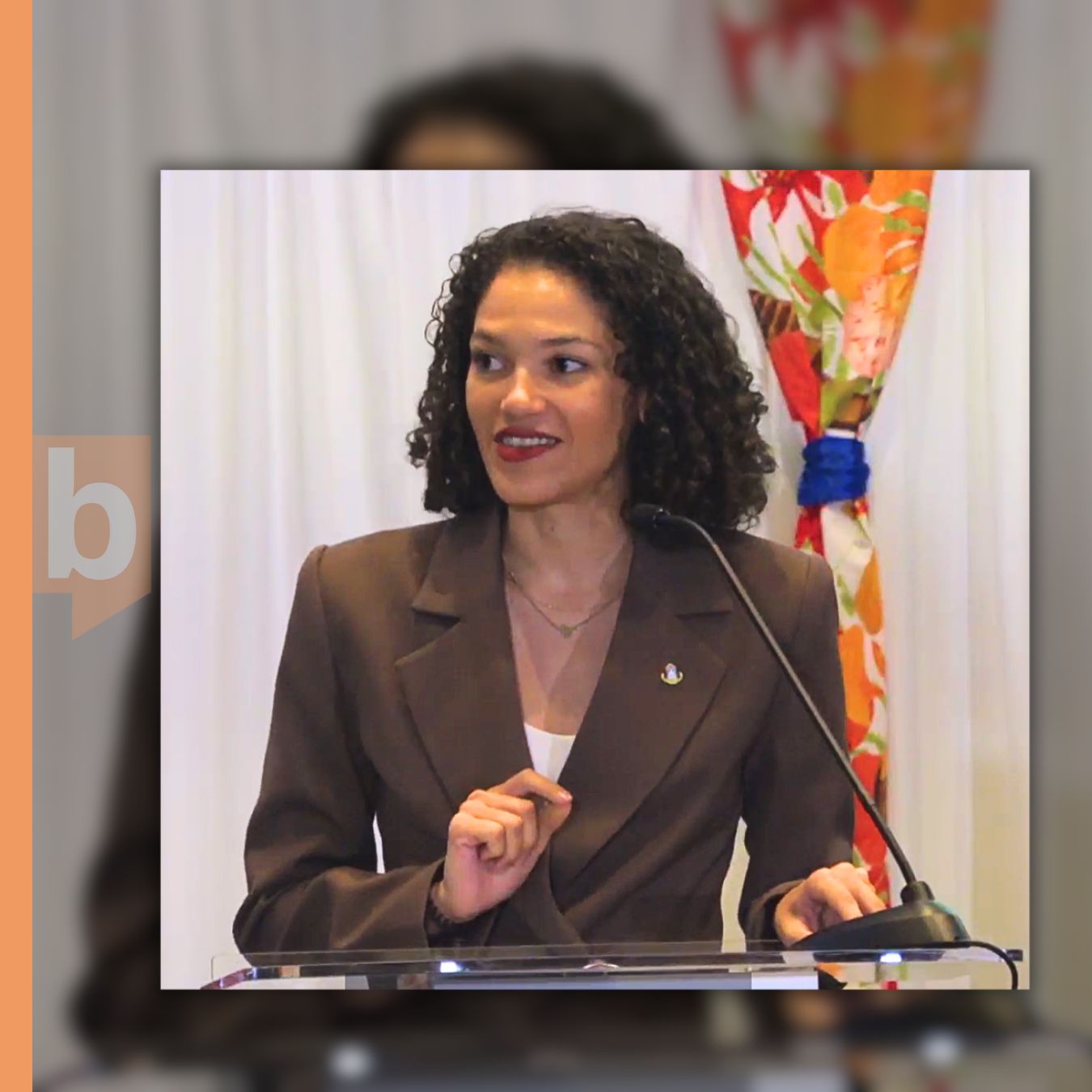Carla Vlaun at Governor’s Symposium: “Consultation is not implementation”

CUPECOY--Researcher and cultural advocate Carla Vlaun, Managing Director at Tackling Law, on Wednesday presented an evidence-based review of fifteen years of autonomy, focusing on how government consultation maps to policy delivery. Her central conclusion was clear, “This analysis reveals what government prioritizes in consultation, but consultation is not implementation.” She was a speaker at the Governor's Symposium.
Vlaun opened by asking participants to choose the community they identify with: 42,900 on the Dutch side, 74,500 for the whole island, 339,600 across the Dutch Caribbean, or 18,419,600 in the Kingdom. The exercise set a practical frame, identity on Sint Maarten operates at multiple scales that overlap in daily life.
She traced identity building that began in civil society, then received governmental recognition. Examples included Saint Martin Day created in 1959 to mark unity, the formal structuring of Carnival beginning in 1969, and the way public spaces carry names like Juancho Yrausquin, which shape collective memory. These layers predate 10 10 10 and still inform how people understand the country.
Vlaun reviewed cultural measures taken since autonomy. Government made Emancipation Day a public holiday, renamed Festival Village in honor of Jocelyn Arndell, and approved currency imagery that places local landmarks and symbols into daily circulation. She noted that governing programs are cultural documents in their own right, they describe the country as it is, and prescribe what it should become.
The core of the presentation was a review of formal advice requests sent to the Social Economic Council over fifteen years, used as a proxy to understand what government considered important enough to consult on. The pattern was consistent: a large share on social insurance and pensions, a significant portion on labor and employment, followed by healthcare, economic development, taxation, and governance and crisis response. Only one request in the entire period directly addressed cultural identity formation, the move to establish Emancipation Day. Vlaun explained that this exception underscores how rarely cultural identity is treated as a structured policy file in the advice record.
Her anchor point followed, the advice trail shows what is asked, not what is done. Consultation records do not confirm execution, budgets, or outcomes. Vlaun argued that a full picture requires tracking delivery: graduation rates and curriculum updates, health coverage reach and access, household cost trends, and other measurable outputs. In several areas, she noted that essential outcome data are not collected consistently, which limits evaluation.
Vlaun also identified gaps in what government chose to consult on. Missing topics included a language policy for education, curriculum content that reflects local history, formal pathways to belonging in immigration, frameworks for cultural heritage preservation and arts funding, and a comprehensive poverty measurement and reduction strategy. Advice was often sought on symptoms, for example minimum wage adjustments during crises, but no request treated poverty itself as a measurable category requiring a national plan. These omissions shape which solutions are even considered.
She then connected consultation to delivery. If the advice agenda is heavy on pensions, labor, and tax, and light on identity and culture, this will show up in what ministries plan, what Parliament debates, and how budgets are written. She urged a rebalancing that pairs the necessary social insurance files with education content, cultural infrastructure, and data systems that can verify progress.
Vlaun closed with a practical invitation. Align identity, evidence, and delivery. Use proactive consultation on curriculum, poverty frameworks, and health delivery to reset national priorities for the next fifteen years. Keep the layered identity in view, Dutch side and French side, the wider Dutch Caribbean, and the Kingdom, and build institutions that reflect that reality. The conclusion returned to the opening line, consultation can be wide and still be shallow if it is not matched with implementation, measurement, and public reporting.
Join Our Community Today
Subscribe to our mailing list to be the first to receive
breaking news, updates, and more.





